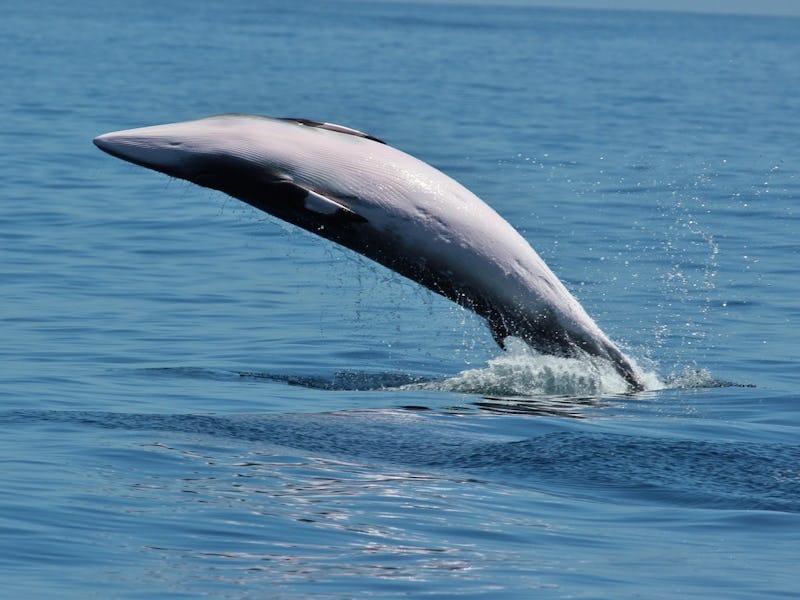Japan Approves Plan to Kill 300 Whales 'For Science'
Almost two years ago an international court ruled Japan's killing of whales wasn't justified. Now they're at it again.

In early December, a fleet will leave Japan and voyage to the Southern Ocean. The waters surrounding Antartica are rich in biodiversity and home to minke whales, which are the reason for the ships. With the approval of the Japanese government, roughly 333 minke whales will be slaughtered in the name of science — though it may be little more than a name.
Japan has issued a special permit for hunting because, they argue, it is for research. Lethal and non-lethal methods are proposed to be used to achieve two objectives: an investigation of the “structure and dynamics of the Antarctic marine ecosystem” and improved information on the population of the Antarctic minke whale. Why culling is necessary is not explained in the report.
The gathering of scientific research, conservationists hypothesize (in much the same way we theorize about gravity), has long been a ruse used to excuse extensive hunting. Since a 1986 international ban on commercial whaling, Japan has killed more than 10,000 whales, 95 percent of the whales hunted during the period. After a decade of pressure from wildlife conservation groups and a lawsuit brought against Japan by Australia, the United Nations’ International Court of Justice ordered the nation to stop hunting whales in the Southern Ocean in 2014.
A minke whale breaches in the Pacific Ocean.
In the lawsuit, the International Court determined that Japan’s whaling programs were not scientific enough in nature to excuse the number of whales killed. Over a span of 10 years and with thousands of whales killed, Japanese scientists only produced two studies based on nine whale specimens.
In a statement, Australia’s Minister for the Rnvironment Greg Hunt announced that Australia strongly opposes Japan’s new decision to halt their hiatus of whaling and argues that the Japan is moving forward without the consent of the International Whaling Commission.
“We do not accept in any way, shape, or form the concept of killing whales for so-called ‘scientific research’,” said Hunt, adding “Japan cannot unilaterally decide whether it has adequately addressed the Scientific Committee’s [of the International Whaling Commission] questions.”
While Japan writes in their proposal that the lethal sample size may be revised, so far there is no evidence that this negotiation will occur. In language that feels uncomfortably unscientific they write: “The Antarctic Ocean has its unique marine ecosystem and has the potential of its abundant living resources that could be sustainably exploited for food and other purposes.”
Whale meat is sold at a market at Wada Port in Japan.
On Monday the Japan Times wrote that the government has made no secret that the meat from the animals killed for research is later processed into food. Marine biologist Leah Gerber told National Geographic after the 2014 ruling that there is “some semblance of scientific activity, including collecting organs for use in research” but that the bulk of the whale goes to Japanese markets.
Currently, minke whales are not endangered. But sustainable numbers, scientist argue, aren’t a good enough excuse to kill the species.